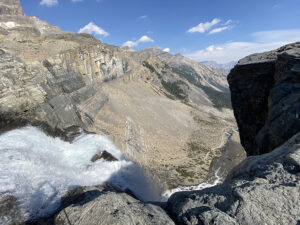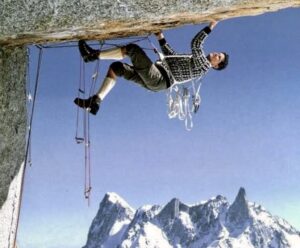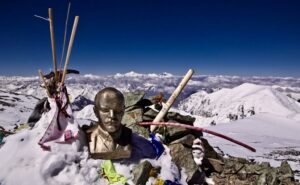Australian soldier Terry Harch, 29, has been rescued after spending almost a week trapped by severe weather on New Zealand’s Mount Aspiring.
Harch set out alone last week to do a quick ascent when he was caught out by 60kph winds and heavy snow. He was reported missing three days later. Search teams found his sleeping bag, stove, food and other gear in a mountain hut.
Harch triggered his Spot beacon, and it was picked up by a private operator in Texas, who contacted rescue authorities New Zealand. They monitored his beacon for days, but concern grew as bad weather continued to frustrate efforts to reach him.

Rescuers wait for the weather to clear. Photo: Nikki Heath/Wanaka Sun
An experienced mountaineer, Harch sheltered in a snow cave for most of the ordeal. It is not known how much food or water he had with him. He was suffering from mild frostbite when four well-equipped climbers eventually reached him this past Thursday.
A descent on foot was ruled out due to the high avalanche risk after the fresh snow, so they waited patiently for the weather to improve. When a brief gap opened up on Friday afternoon, he was choppered out in a snatch and grab. “I don’t think he would have lasted another night,” said the pilot. “He was lucky to be alive.”

Mount Aspiring from Bevan Col. Photo: Jaz Morris
The immediate danger in such a situation is hypothermia, but as the days wore on, dehydration became a serious concern, since he had left his stove behind and couldn’t melt snow. You can’t get enough fluid just by putting snow in your mouth.
Most people can can go without eating for up to six weeks, depending on body fat, but the typical limit without water is just a week, depending on temperature and activity.
In the annals of survival, there is the occasional exception: In 2006, Japanese climber Mitsutaka Uchikoshi survived for three weeks without food and water after reportedly falling into a hypothermic state akin to hibernation.
Mitsutaka had climbed Mount Rokko (931m) in western Japan but tripped and lost consciousness during his solo descent. He was found 23 days later with a body temperature of just 22C, a barely discernible pulse and multiple organ failure. He recovered completely.
At 3,033m, Mount Aspiring is modest by big mountain standards, but it is a very technical climb. It is rarely attempted in winter due to the challenging conditions and deep snow, and it has claimed more than 30 lives in the past decade.






